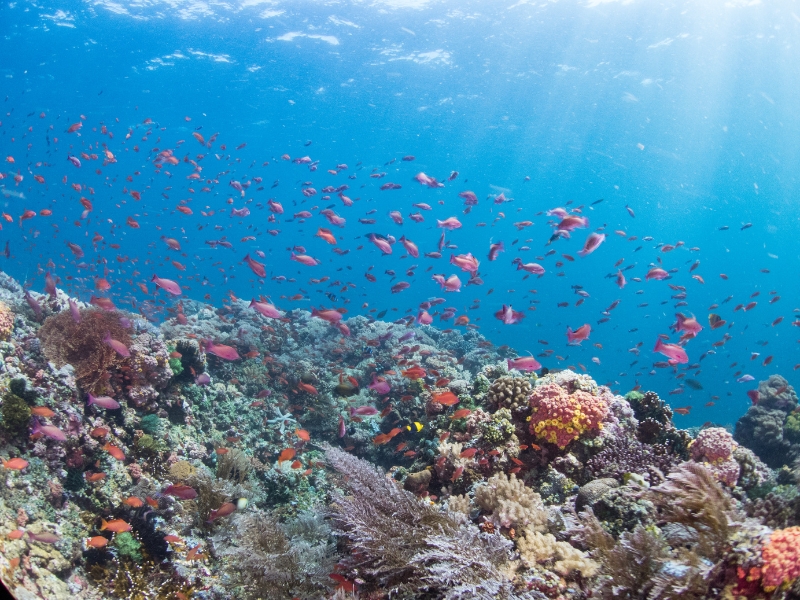Research has found that sport fishing has a bigger environmental impact than thought before, especially for threatened marine fish species. It’s hard to imagine that your weekend hobby has any effect on marine life and the fish population, so you may be puzzled why fishing is bad at times.
A single angler doesn’t have a huge impact on wild fish. But multiply the number of fish a single angler catches in one day by millions of anglers, and you’ll get a massive harvest. Also, trophy anglers intentionally target the biggest fish of a species, affecting the entire population.
Keep reading to learn about the effects of recreational and commercial fishing on the environment. This article will tell you about the negative impact of the fishing industry and the cause of overfishing.
Does Fishing Have a Negative Impact?
Commercial fishing and fish farming have a negative impact on the environment, affecting the health of oceans and fisheries around the world.
From ancient times, humans have relied on the ocean as a source of food, harvesting an abundance of fish. In recent years, technological advances allowed people to take marine life from the oceans on a colossal scale.
Unfortunately, these fishing practices have many negative environmental effects, including:
Overfishing
Overfishing is the removal of fish species from a body of water at a rate that doesn’t allow the fish species to replenish their population naturally. This causes the species to become underpopulated in that area.
Overfishing can happen in rivers, ponds, lakes, wetlands, or oceans and causes resource depletion, low biomass levels, and reduced biological growth rates.
Some types of overfishing, like the overfishing of sharks, have affected entire ocean ecosystems.
Habitat Damage
In addition to taking a massive amount of fish from the ocean, many industrial fishing practices also cause habitat damage. Dredging and seafloor trawling destroy corals, oysters, and sponges that create marine habitats.
Dragging large metal scoops and pulling fishing equipment across the seafloor also churns up sediment along the seabed, causing particles to become suspended in the water and decreasing water quality.
Bycatch
Bycatch is part of the catch that consists of non-target species. These wild fish that are caught unintentionally are kept to be sold or discarded. Bycatch is often sorted from profitable catches and dumped back in the water, injured or dead.
The fishing industry produces bycatch every day, but even recreational fishermen discard a lot of target and non-target fish while fishing. It’s estimated that for every pound of target fish caught, up to 5 pounds of non-target species are taken and discarded as bycatch.
What Are the Bad Things About Fishing?

Fishing creates many negative environmental consequences. Fishing and pollution caused by fishing are the biggest contributors to the decline of water quality and ocean health.
Ecological Disruption
Overfishing causes over-exploitation of marine ecosystems. Fishing also negatively affects fish populations, including physical injuries resulting from lodged hooks and increased stress levels.
When this happens, certain marine ecological disturbances are observed. Ecological disruption is also caused by the overfishing of essential fish species, known as ecosystem engineers.
Ghost Fishing
Fishing gear lost in the water or discarded by fishermen is called ghost gear. Ghost fishing is a term used to describe discarded fishing gear that continues to kill fish.
This fishing gear continues to trap, fish, entangle, injure, and kill marine life, and stifle habitats. Discarded fishing gear such as nets, traps, and pots are the main type of debris that affects the marine environment.
Toxic Water Conditions
Although aquaculture farms raise fish away from their natural habitats, they impact the ocean in many negative ways. Crowded, filthy fish farms provide a perfect breeding ground for diseases.
A new study has found that disease-causing bacteria and viruses were twice as common in areas around salmon farms. Parasites, like sea lice, easily escape factory farms, infecting wild fish populations.
What Is Causing the Problem of Overfishing?
Overfishing is mainly associated with commercial fishing and companies taking tons of fish that are often mixed with other unintendedly caught marine life. There are many causes of overfishing, including:
Subsidies
The world’s fishing fleet is estimated to be two-and-a-half times bigger than what is actually necessary. Subsidies are financial support provided to the fishing industry by governments to offset the costs of doing business. This practice perpetuates the problem of overfishing by keeping these massive fishing operations in business.
Subsidies cause overcapacity of fishing vessels and reduce production costs so the fishing operations can continue working when they would become unsuccessful.
Poor Management of Fisheries
Many fisheries worldwide aren’t adequately regulated to protect the oceans and marine life. The activities and fishing practices of these fisheries aren’t overseen or monitored.
Unprotected Oceans
Only 1.5 percent of oceans are protected, leaving the better part open to fishing fleets that can overfish and deplete unprotected fisheries. Even more surprising is that more than 80 percent of protected ocean areas still allow fishing.
What Is the Main Problem in the Fishing Industry?
Regulated amounts of fishing are healthy and help keep the marine ecosystem in check. But problems in the fishing industry are causing fish species to be taken or killed faster than they can replenish themselves.
Overfishing is the main problem in the fishing industry, and sadly it’s not the only one. Plastic pollution, habitat degradation, bycatch, and ghost fishing are affecting the health of the entire planet.
Conclusion
Fishing has a huge environmental impact and threatens the existence of many fish species. Commercial fishing affects the health of the oceans in many ways, mostly by overfishing entire areas of the ocean.
Although recreational fishing isn’t as damaging as commercial fishing, it has a bigger impact on the environment than you can imagine. Recreational anglers worldwide catch and discard one million fish yearly, which is around 1 percent of global marine fisheries catch.